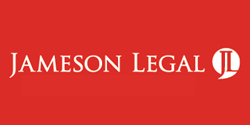Hogan Lovells has achieved a further landmark judgment for BTA Bank in one of the biggest fraud cases to have ever come before the English courts. Today the Supreme Court has ruled in favour of BTA Bank in relation to its appeal over Mr Ablyazov's use of unusual loan arrangements to circumvent spending restrictions contained in the English standard form freezing order.
The judgment relates to four loan agreements with two BVI companies, worth £40 million in total, which Mr Ablyazov took out while his assets were frozen by the worldwide freezing order obtained by BTA Bank at the outset of the English proceedings. Mr Ablyazov directed the lenders to pay monies to fund his solicitors, the solicitors of other defendants and various other third parties, without disclosing details of those payments to BTA Bank or the court. The Supreme Court has today unanimously ruled that Mr Ablyazov's secret funding arrangements were in fact captured by the terms of the freezing order, and were therefore subject to the restrictions and disclosure obligations contained within it. In doing so, the Supreme Court has overturned the previous decisions at first instance and in the Court of Appeal.
This is the first time the Supreme Court has been asked to interpret the standard form freezing injunction and the ruling sets a precedent for future English freezing orders.
The Hogan Lovells team advising BTA Bank was led by London litigation partners Chris Hardman and Alex Sciannaca, supported by associate Tom Devine.
Commenting on the judgment, Alex Sciannaca said:
"This is the first time that the Supreme Court has been called upon to rule on the Bank's continuing proceedings to recover the billions of dollars stolen from it by Mr Ablyazov.
"We welcome this decision, which confirms that the huge loan agreements that Mr Ablyazov set up to fund his and other defendants' legal costs - as well as to make various other undisclosed payments to third parties - were captured by the freezing order, meaning that those payments should have been subject to the scrutiny of the Bank and the court all along.
"The Supreme Court's judgment closes a loophole in the freezing order regime that unscrupulous defendants such as Mr Ablyazov have previously sought to exploit."
